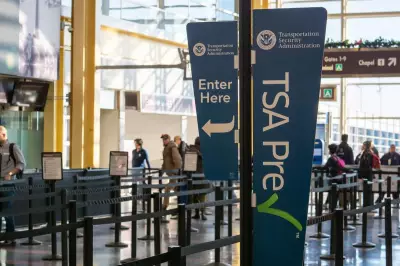
Once the undisputed king of the skies, Boeing has suffered a spectacular fall from grace that has reshaped the global aviation landscape. The American aerospace giant, which dominated air travel for decades, has been dethroned in a dramatic shift that's sending shockwaves through the industry.
The Safety Scandals That Shook Passenger Confidence
Recent years have been turbulent for Boeing, marked by high-profile safety incidents that have eroded public trust. The most devastating blow came with the 737 MAX crisis, following two catastrophic crashes that claimed 346 lives. This tragedy triggered a global grounding of the aircraft and exposed serious questions about the company's safety culture and manufacturing standards.
"Passengers are now actively checking what type of aircraft they're booking onto," reveals aviation analyst Michael Boyd. "There's a growing awareness and concern that simply didn't exist five years ago."
Airbus Soars While Boeing Stumbles
As Boeing's reputation faltered, European rival Airbus capitalized on the opportunity. The manufacturer has seen its order book swell while Boeing struggles with production delays and quality control issues. Industry data shows Airbus delivering more aircraft and securing more orders consistently since 2019.
The Ripple Effect on Airlines and Travellers
This shift isn't just corporate drama—it's affecting everyday travellers and airline operations:
- Airlines are reconsidering fleet strategies and future orders
- Some carriers are openly expressing preference for Airbus aircraft
- Maintenance costs and reliability concerns are influencing purchasing decisions
- Passenger anxiety about specific aircraft models is becoming a commercial factor
Production Nightmares and Delivery Disasters
Boeing's troubles extend beyond safety concerns. The company has been plagued by production issues that have delayed deliveries and frustrated airline customers. From manufacturing defects to supply chain problems, the production line has become a source of constant headaches.
Recent incidents, including mid-air emergencies and manufacturing flaws discovered during inspections, have only intensified scrutiny. Each new headline damages consumer confidence and reinforces the narrative of a company in crisis.
What This Means for British Travellers
For UK passengers, the Boeing situation has practical implications. Many popular routes from British airports are served by Boeing aircraft, particularly the workhorse 737 models. While aviation authorities maintain all flying aircraft meet safety standards, the perception problem persists.
Aviation safety expert Dr. Sarah Jenkins cautions: "While the aircraft flying today have passed rigorous safety checks, the fundamental issues at Boeing need addressing. This isn't just about individual planes—it's about restoring confidence in an entire safety culture."
The Long Road to Recovery
Regaining public trust and industry leadership won't happen overnight for Boeing. The company faces a monumental task of rebuilding its reputation while addressing deep-rooted cultural and manufacturing issues. With Airbus strengthening its position and new competitors emerging, the aviation landscape may have changed permanently.
As one industry insider noted: "The days of Boeing's automatic dominance are over. Every order, every delivery, every safety incident is now scrutinized in a way that would have been unthinkable a decade ago."






